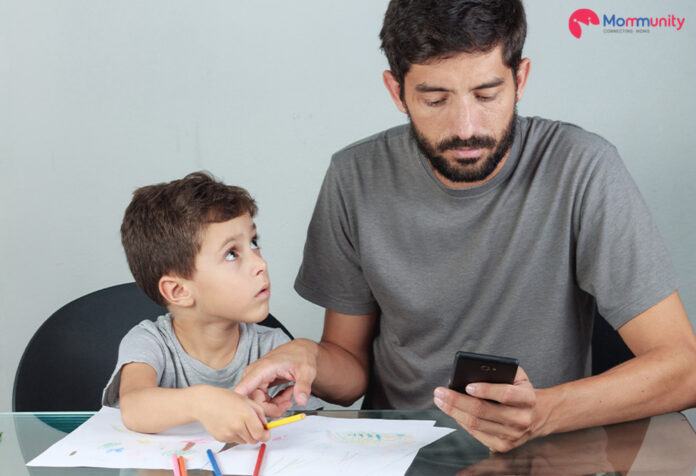Do you believe your child’s future also depends on how they were brought up? As a parent, you have the power to shape your child’s future. There are different approaches to parenting, the uninvolved parenting style stands out because of its unique characteristics.
By understanding what this parenting style is all about. How does it improve the bond between parent and child? In this blog, we will explore the uninvolved parenting style, its potential effects, and ways to overcome any challenges.
What is the Uninvolved Parenting Style?
Sometimes uninvolved parenting style are referred to as neglectful or indifferent parenting. It is characterized by a lack of responsiveness to a child’s needs. Unlike other engaged parenting styles, uninvolved parents are typically less nurturing, have limited communication with their children, and may seem indifferent to their child’s behavior or well-being. This parenting style lacks the structure, guidance, and emotional support that is typically seen in other parenting approaches.
5 Key Characteristics of Uninvolved Parenting
Few behaviors make uninvolved parenting different from other parenting styles. Here are some of its primary characteristics:
1. Minimal Emotional Involvement
Parents who adopt this parenting style are likely to be uninvolved parents. They have limited emotional connections with their children. There may be little to no display of affection, empathy, or understanding.
2. Low Responsiveness
These parents are not aware of their child’s needs or emotions. There may be a delay or absence of action in providing care, support, or attention when the child needs it.
3. Limited Supervision and Guidance
Parents who are involved in parenting, their children may experience a lack of rules, boundaries, or discipline. This leads to children having significant independence, often without understanding right from wrong.
4. Lack of Interest in Child’s Activities
These types of parents don’t show any interest or very little interest in their child’s schoolwork, social activities, hobbies, or overall well-being.
5. Inconsistent Availability
It doesn’t matter whether it’s physically or emotionally, uninvolved parents may not be readily available to their children. Their absence may be due to various factors such as work, personal issues, or simply a lack of engagement.
4 Potential Causes of Uninvolved Parenting
There are a few factors that lead to an uninvolved parenting style. These include:
1. Personal Issues
Challenges that are related to Mental like depression, anxiety, or high-stress levels can make it difficult for parents to engage with their children.
2. Lack of Parenting Knowledge
Some parents may not be able to understand the importance of their role or might lack the skills to provide proper care.
3. Substance Abuse
Addiction or substance use can make it hard for a parent to be emotionally or physically available for their child.
4. Socioeconomic Stress
Work stress or financial difficulties can also be the reason for uninvolved parenting. This can push parents into focusing more on survival needs than on the emotional and developmental needs of their children.
5 Effects of Uninvolved Parenting on Children
Uninvolved parenting can have profound and lasting effects on a child’s development. Some potential impacts include:
1. Emotional and Social Development Issues
Children who do not receive good emotional support may struggle with forming relationships, managing their emotions, and developing self-esteem.
2. Academic Challenges
Uninvolved parents usually do not pay attention to children’s academic performance. This often leads to a lack of support in homework, school attendance, and extracurricular activities.
3. Behavioral Problems
Without keeping an eye on children’s behavior. Without clear boundaries and supervision, children may exhibit problematic behaviors such as aggression, defiance, or risk-taking.
4. Difficulty in Building Self-Esteem
Uninvolved parenting can hinder a child’s ability to develop a positive self-image. The lack of nurturing and attention often leaves children feeling unwanted or unimportant.
5. Poor Coping Skills
Since uninvolved parents often do not provide the emotional support necessary for children to learn effective coping mechanisms, these children may struggle to manage stress, anxiety, and other challenges in life.
Different Parenting Styles for Comparison
To better understand the uninvolved parenting style, it’s helpful to compare it with other common parenting styles:
1. Authoritative Parenting
Often seen as the most balanced style, authoritative parents are warm and responsive but set firm boundaries. They actively engage with their children’s lives, encouraging open communication and guidance.
2. Authoritarian Parenting
This style is characterized by strict rules, high expectations, and less emotional warmth. Parents set rigid guidelines and expect obedience, often without offering much room for discussion or flexibility.
3. Permissive Parenting
Permissive parents are indulgent and tend to be lenient with their children. They provide warmth and emotional support but set few boundaries or rules, allowing children to make many of their own decisions.
In the end, the uninvolved parenting style, which is known for a lack of responsiveness and emotional connection, can have significant consequences for a child’s development. While personal issues, lack of knowledge, substance abuse, and socioeconomic factors may contribute to this style, it is important to recognize its detrimental effects.
Emotional and social challenges, academic difficulties, behavioral problems, low self-esteem, and poor coping skills are just some of the potential outcomes of uninvolved parenting. It is essential for parents to understand the importance of their role in shaping their children’s lives and strive to provide the necessary emotional support, guidance, and supervision.




